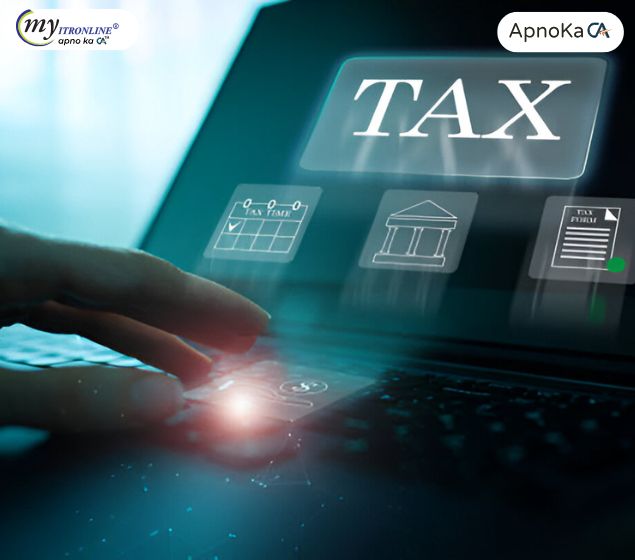# compliance
12 posts in `compliance` tag
.jpg)
Taxpayer Alert! Decoding Income Tax Department's New Rules for FY 2025-26
The Income Tax Department is making significant updates and tightening compliance for FY 2025-26 (AY 2026-27). This blog post serves as an important "taxpayer alert." It explains key changes, such as the mandatory Aadhaar-based verification for updates to the e-filing portal and PAN applications. There is also a stronger emphasis on computer-assisted scrutiny (CASS) for certain types of returns, including survey/search cases, ITR-7 filers, recurring additions, and intelligence alerts. Additionally, it provides information on expected delays in ITR refunds due to outstanding demands and technical upgrades. The focus on HRA claims will tighten, especially those that involve family members. It highlights the need for proactive compliance, careful record-keeping, and timely responses to avoid penalties and ensure a smooth tax experience.
.jpg)
Tax Alert! TRACES Releases New Utilities for Deductors & Collectors
This blog post announces the release of new utility versions on the TRACES (TDS Reconciliation Analysis and Correction Enabling System) portal for Justification Reports (Version 3.4), Form 16A (Version 2.1L), and Form 27D (Version 1.4). It explains the purpose of each document, detailing how the updated Excel utility for Justification Reports enhances error analysis and how the new Form 16A and 27D utilities simplify certificate generation. The post emphasizes that these updates signify the Income Tax Department's commitment to improving compliance, reducing errors, and streamlining TDS/TCS processes for deductors and collectors.
.jpg)
TDS Rules for Your Rent and Property: What You Need to Know
This blog post offers a clear comparison of four important TDS sections related to property and rental income in India: 194I, 194-IA, 194-IB, and 194-IC. It explains each section's nature of payment, payer, payee, threshold limits, TDS rates (including recent changes for 194-IB and 194I for FY 2025-26), time of deduction, required forms, and TAN requirements. The post also discusses the connections between these sections, compliance issues, and best practices for individuals, businesses, and developers to manage the TDS landscape effectively and avoid penalties.
.jpg)
Don't Get Penalized: The Essential Guide to TDS on Rent Above 50,000
This blog post provides a comprehensive guide for individuals and HUFs paying monthly rent above 50,000, highlighting their often-overlooked TDS obligations under Section 194-IB of the Income Tax Act. It details who is applicable, the current TDS rate (2% from Oct 2024, 5% earlier), deduction and deposit timelines (annual deduction, 30 days for deposit), and the use of Form 26QC and Form 16C. Crucially, the post emphasizes the severe consequences of non-compliance, including various interest charges, late filing fees (up to 200/day), substantial penalties (10,000-1,00,000), and even potential prosecution. It also offers actionable steps for compliance and guidance for those who have missed previous deductions, urging tenants to prioritize this crucial tax duty to avoid significant financial and legal repercussions.

Facing ITR Penalties? Here's What Section 234F & 234A Mean for You
This blog post demystifies the consequences of late Income Tax Return (ITR) filing in India, specifically detailing the penalties under Section 234F (late filing fee) and the interest charged under Section 234A (for delayed tax payment). It explains the calculation methods, applicable scenarios, and additional disadvantages of missing the ITR deadline, urging taxpayers to prioritize timely filing to avoid financial burdens and ensure compliance.

Income Tax E-Filing: Aadhaar OTP Verification Becomes Mandatory – Your Essential Guide
This blog post details the recent mandatory implementation of Aadhaar OTP verification on the Income Tax e-Filing portal for ITR verification and other services. It explains the reasons behind this shift, focusing on enhanced security, streamlined processes, and data integration. The post outlines the crucial impact on taxpayers, emphasizing the necessity of PAN-Aadhaar linking and updated mobile numbers. It also provides actionable steps for those not yet ready and reiterates the benefits of this digital transformation for tax administration in India.

ITR-B Online: New Ease for Section 158BC Notices
This blog post details a significant update for taxpayers who have received a notice under Section 158BC of the Income-tax Act, 1961. It explains that Form ITR-B, a special return for undisclosed income found during past search and seizure operations, can now be submitted conveniently through the Income Tax portal's e-Proceeding tab. The article clarifies what a Section 158BC notice entails, highlights the benefits of online submission (convenience, efficiency, transparency), provides step-by-step guidance, and emphasizes the crucial role of professional advice for these complex assessments.

Tax Audit Made Easy: Your Simple Guide to Section 44AB (FY 2024-25)
This blog simplifies the concept of Tax Audit under Section 44AB of the Income-tax Act, 1961 for regular taxpayers. It explains why tax audits are essential, clearly outlines the turnover/receipt limits for businesses (₹1 Crore/₹10 Crore) and professionals (₹75 Lakhs) for FY 2024-25, and details special cases involving presumptive taxation. The article highlights the crucial role of a Chartered Accountant, the forms used (3CA, 3CB, 3CD), and the general deadline of September 30, 2025. Finally, it elaborates on the significant penalties for non-compliance and offers practical advice for taxpayers to ensure a smooth audit process.
.jpg)
CBDT's Latest: Interest Waivers for Past TDS/TCS Delays Are Now Confirmed!
This blog post summarizes CBDT Circular No. 8/2025, which clarifies that interest waivers for delayed TDS/TCS payments due to technical issues can apply to past charges, provided applications meet the one-year deadline

Form 10B Guide for Trusts (AY 2025-26)
This comprehensive guide explains Form 10B, an essential audit report for charitable/religious trusts, educational institutions, and hospitals under the Income Tax Act (2025). It details who needs to file it (especially those with over ₹5 crore income, foreign contributions, or income applied outside India), its key contents, the step-by-step online filing process, and the crucial September 30, 2025 due date for AY 2025-26. The synopsis also highlights the severe consequences of non-compliance, emphasizing the report's vital role in maintaining tax-exempt status and ensuring financial transparency.

Income Tax Notice: Decoding Section 142(1) for Missing Deductions in Your ITR
This comprehensive blog post demystifies Section 142(1) notices from the Income Tax Department, specifically when issued for missing or incorrect deductions in your ITR. It explains the purpose of such notices, common reasons for their issuance (like Form 26AS/AIS/TIS mismatches or lack of supporting documents), and provides a step-by-step guide on how to prepare an accurate and timely response. The post also highlights the severe consequences of non-compliance and offers valuable tips for prevention through meticulous record-keeping and thorough ITR review.

Income Tax in India: Are You Prepared for July 2025?
This blog post provides a comprehensive overview of the significant income tax changes coming into effect in India from July 1, 2025. It details the more attractive new tax regime with revised slabs and increased deductions, the extended ITR filing deadline, the mandate for Aadhaar in PAN applications, and the real-time PAN-bank linking system. Furthermore, it touches upon the updated ITR forms and the broader proposals of the Income Tax Bill 2025, offering taxpayers crucial insights for compliance and effective tax planning.
